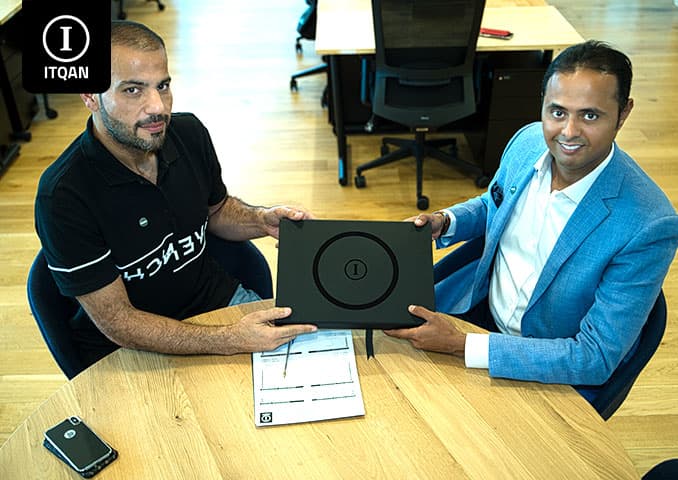How much does it cost to set up a company in Dubai? Dubai is one of the world’s leading business and investment destinations, thanks to its advanced economic environment and diverse opportunities. But before embarking on the journey of setting up a company in Dubai, it is essential to understand the costs associated with this step. The cost of setting up a company in Dubai varies based on a number of factors, such as the type of company, its location, and the size of the business. The basic costs include licensing fees, registration costs, as well as visa and rental expenses. In addition, there may be additional costs including consulting and legal services, which can affect the total expenses. This introduction aims to shed light on the different aspects of the costs of setting up a company in Dubai , helping investors and entrepreneurs plan their budget and make informed decisions about their investment in this vibrant city.

جدول المحتوى
ToggleCost Factors of Company Formation in Dubai
The cost of setting up a company in Dubai varies based on several key factors:
- Type of company: Costs vary depending on the type of company you intend to establish, such as a limited liability company (LLC), an offshore company, or a branch of an international company. Each type has different requirements and costs.
- Location: The impact of location on costs is clear, with fees varying depending on the free zone or commercial zone. Companies set up in free zones may benefit from tax incentives and lower rental costs compared to other areas.
- Licenses and Permits: Obtaining the required licenses varies depending on the type of business activity. Some activities require special licenses or additional permits, which affects the final costs.
- Rent: The cost of renting an office or commercial space plays a big role in determining the overall cost. Rental rates vary depending on the location and size of the space.
- Visas: Costs also include visa fees for employees and investors. These costs can be significant especially if you have a large number of employees.
- Legal Consulting and Services: Hiring consultants and lawyers may add additional costs. These services include preparing legal documents and ensuring that the company complies with local regulations.
- Initial operating costs: These include the basic expenses of running the business, such as furniture, equipment, and software.
- All of these factors are essential when estimating the cost of setting up a company in Dubai, and planning ahead can help manage these costs efficiently.
Requirements for establishing a company in Dubai
Establishing a company in Dubai requires following a set of steps and meeting a number of basic requirements, which include:
- Choose the type of company: Determine the type of company you want to establish (such as a limited liability company, a branch of a foreign company, or a sole proprietorship). The type of company will determine the legal requirements and licenses needed.
- Choosing a company name: Choose a trade name that complies with Dubai laws and does not conflict with any registered trademarks. The company name must be submitted for approval by the Department of Economic Development or the responsible authority in the free zone.
- Preparing legal documents: Preparing the necessary documents such as the articles of association and the company’s bylaws, and documenting them if necessary.
- Obtaining a commercial license: Apply for the appropriate commercial license for the type of activity the company will be conducting. This requires submitting documents such as the lease contract, passports, and details of the managers and investors.
- Office Rental: Providing a physical office for the company in Dubai, where a lease agreement is required as part of the registration requirements. This space can be in a free zone or a commercial area.
- Opening a bank account: Opening a business bank account in one of the approved banks in Dubai. This requires submitting company documents and details of its activity.
- Applying for Visas: Apply for residence visas for managers, investors and employees, depending on the size and activity of the company. Visa applications must be submitted to the Department of Residency and Foreigners Affairs.
- Issuance of Registration Card: After obtaining the license and visas, a registration card is issued to the company by the competent authorities.
- Tax Registration: Register with local tax authorities if the company is subject to taxes, and ensure compliance with applicable tax regulations.
- Compliance with health and environmental standards: If the business requires compliance with certain health or environmental standards, you must ensure that these standards are met.
- These steps require coordination with government agencies and specialized consultants to ensure that all requirements are met correctly and smoothly.
Documents required to establish a company in Dubai
Establishing a company in Dubai requires submitting a set of basic documents, which may vary slightly depending on the type of company, its activity and its location. However, in general, the required documents include:
- Articles of Association and Bylaws: Legal documents that define the structure of the company, the rights and duties of partners or shareholders, and operating terms.
- Commercial License Application: The license application form must be completed and submitted to the Department of Economic Development or the responsible authority in the free zone.
- Copies of Passports: Color copies of passports of all shareholders, directors, and any key individuals in the company.
- Copy of residence visas: If the shareholders or directors are residents of the UAE, copies of residence visas must be provided.
- Bank Certificate: A letter from a local bank proving that a bank account has been opened in the company’s name and confirming the availability of the required capital (if required).
- Lease Contract: The lease contract for the office or place where the company will operate. This contract must be registered and approved by the competent authorities.
- No Objection Certificate: If a shareholder or director is working in another job, he may need a No Objection Certificate from his current employer.
- Industrial or commercial license (if applicable): If the company is carrying out activities that require special licenses, these licenses must be submitted.
- Partner Information: Detailed information about partners or shareholders, including their CVs and professional backgrounds if required.
- Special permits: Depending on the type of activity, you may need to submit special permits or certificates, such as health or environmental permits.
- Be sure to check the requirements for your company type and activity, as details may vary depending on the entity being dealt with and the specific nature of the business.
Advantages of establishing a company in Dubai
Establishing a company in Dubai comes with many advantages that make it an attractive destination for investors and entrepreneurs. Among the most prominent of these advantages are:
- Flexible Business Environment: Dubai offers a flexible and fast-paced business environment, facilitating business set-up procedures and fostering innovation and growth.
- Tax incentives: Dubai offers a variety of tax incentives, including corporate tax exemptions, and no corporate income tax or dividend tax in many free zones.
- Advanced infrastructure: Dubai has an advanced infrastructure that includes modern ports, airports and logistics facilities, which contribute to facilitating the movement of goods and services.
- Strategic Location: Dubai is located in a strategic geographical location linking the East and the West, making it a major hub for global trade and investment.
- Freedom of ownership: Many free zones in Dubai offer 100% ownership of the company to foreigners, eliminating the need for a local partner.
- Diverse Market: Dubai offers a diverse market and has seen significant growth in many sectors, including technology, finance, real estate and services.
- Easy access to global markets: With free trade agreements and a strategic location, businesses in Dubai can easily access global markets.
- Favorable legal system: Dubai offers a legal system geared towards supporting business and investment, including advanced commercial laws and clear regulatory requirements.
- Ease of licensing and registration: Government agencies facilitate licensing and registration procedures, reducing the time and effort required to establish companies.
- Access to work and residence visas: Dubai offers flexible options for work and residence visas, making it easier to attract and retain international talent.
- Comfortable and luxurious living: Dubai offers a distinctive lifestyle that includes a high level of luxury and services, which enhances its attractiveness as a place to live and work.
- These features make Dubai a preferred destination for many investors and entrepreneurs seeking growth and expansion in a thriving business environment.
Obtaining a commercial license to establish a company in Dubai
To obtain a commercial license to establish a company in Dubai, specific steps must be followed, including submitting certain documents and adhering to legal requirements. Here are the basic steps:
- Selecting the type of license: Determine the type of commercial license that is appropriate for the company’s activity. There are different types of licenses, such as general commercial license, industrial license, or tourism license, depending on the type of activity.
- Determine the company name: Choose a trade name for the company that complies with local laws and does not conflict with other trade names. The availability of the name must be checked through the website of the Department of Economic Development or the responsible authority.
- Preparing legal documents: Preparing the necessary legal documents such as the articles of association and the company’s bylaws, and documenting them if necessary.
- Obtaining initial approvals: Submit an application for initial approval from the Department of Economic Development or the responsible authority in the free zone, including review of documents and approval of the trade name and activity.
- Submitting a license application: Fill out the commercial license application form and submit it with all required documents to the Department of Economic Development or the competent authority in the free zone.
- Issuance of a lease contract: Submit a lease contract for an office or commercial space in Dubai, as this document is used as part of the license application.
- Open a bank account: Open a business bank account in the company’s name and provide a certificate from the bank confirming the availability of the required capital if necessary.
- Submitting documents: Submit all required documents such as passports, lease contract, bank certificate, and any additional documents requested by the authority.
- Pay the fees: Pay the fees associated with the issuance of the license. The fees vary depending on the type of license and the type of company.
- Receiving the license: After reviewing the application and documents, and fulfilling all conditions, the commercial license is issued. The license can be obtained from the Department of Economic Development or the relevant authority in the free zone.
- Registering the company with government departments: The company may need to register with other government departments such as the Ministry of Human Resources or the Health Insurance Authority, depending on its activity.
- Make sure to follow all the requirements and instructions of the competent authority to avoid any delays or complications in the process of obtaining a commercial license.
Dubai is one of the world’s leading business destinations, thanks to its dynamic investment environment and promising opportunities. With advantages such as tax incentives, advanced infrastructure, and strategic location, Dubai facilitates and enriches the business setup experience. However, success in this field requires a thorough understanding of the procedures and legal requirements, from choosing the type of company and trade name, to obtaining licenses and preparing the necessary documents. With the right steps and proper planning, investors and entrepreneurs can benefit from Dubai’s thriving business environment and achieve their business goals effectively. These factors contribute to making Dubai an ideal choice for anyone looking to launch a successful business venture in the heart of the Middle East.
Frequently asked questions about establishing a company in Dubai
What are the costs associated with setting up a company in Dubai?
Costs vary depending on the type of company, its location, and business licenses. Major costs include licensing fees, office rent, visas, and legal and administrative fees.
Can foreigners own 100% of companies in Dubai?
Yes, in many free zones in Dubai, foreigners can own 100% of the company without the need for a local partner. However, companies established outside the free zones may require a local partner with 51% of the shares.
What types of companies can be established in Dubai?
Different types of companies can be established in Dubai, including limited liability companies (LLC), public or private joint stock companies, sole proprietorships, branches of international companies, and companies in free zones.
















